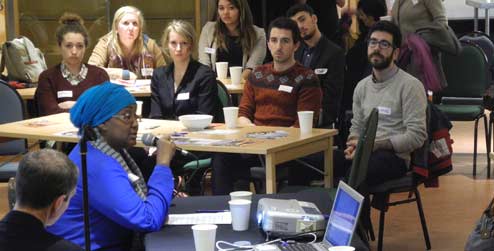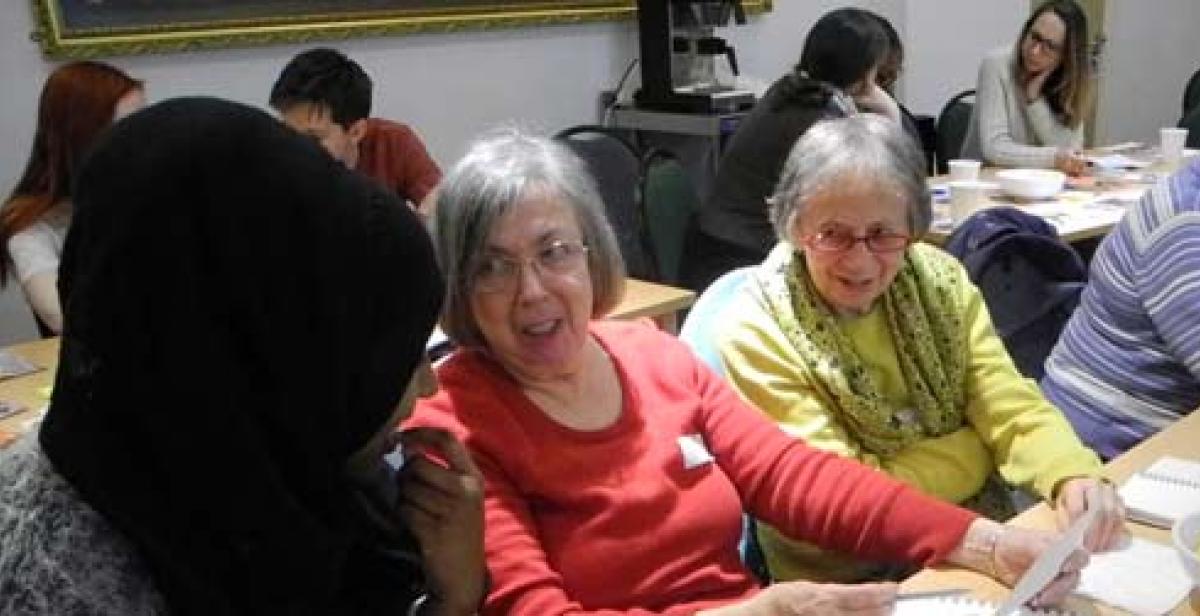Campaigners are being introduced to a new concept that it is hoped will spark conversations across the country and spur on progress for women’s political participation. It’s called a ‘wadahadal’.
On Tuesday 21 January, over 60 campaigners gathered at St Mary Moorfield’s Catholic Church in London to ‘wadahadal’ in support of Unbreakable - a new campaign that seeks to draw attention to the political under-representation experienced by women living in so called ‘fragile states’ such as Somaliland and Yemen. In Somali, ‘wadahadal’ means ‘coming together to talk’ and it’s an important stage in decision-making processes that women are often excluded from.
Speaking at the campaign launch event, Suad Abdi, Progressio’s Country Manager in Somaliland, explained why women being involved in politics is crucial for her country’s future development, saying:
“My number one priority is women’s political representation. If women are not represented, who will raise and discuss social issues? What about maternal mortality? What about the problems with water, both rural and urban? These are the issues that women encounter in everyday life, but social issues are not considered important because those in power are not coming into contact with them and so they don’t get discussed.”

According to Suad, the lack of women’s political representation in Somaliland is having a detrimental effect on the country's potential to tackle some of the toughest developmental challenges. It’s not that the men who have influence in decision-making don’t care about these issues, it’s more a problem of being out of touch.
“They go home, they get water, but they don’t know how their families have suffered to make it possible for them to drink and eat,” explains Suad. “They are not aware of the way that women have to work to put meals on the table. Women provide for their families and are often the breadwinners. It’s women that are active and vocal on social issues. They have to have a share in decision-making.”
So why aren’t women being listened to on these crucial issues? The case in Somaliland is a complicated one. While democratisation has brought a great deal of stability to the country, Somaliland politics are inseparable from the traditional clan-based and male-dominated structures of power, making it hard for women to have a say.
“It’s an un-level playing field for a woman in politics,” explains Suad. “She’s kicking the ball upwards towards a place that it cannot reach and the ball just rolls back to her again. Even if a woman does gain a position in politics, it doesn’t mean that she has influence.”
Suad is campaigning alongside others in Somaliland for a women’s quota to be introduced so that at least 20% of representatives elected in the next election will be women. She believes this, together with a strong and lively civil society women’s movement to support those in power and hold them to account, will help. Once the quota is achieved, women’s under-representation in Somaliland politics may start to be overcome, but Suad believes real change requires a much more significant cultural shift. The gender bias in Somaliland’s politics is deeply rooted in family dynamics.
“Even at a family level women are very far away from the decision-making processes. Somali girls are told that they are responsible for caring for the family whilst boys are told to be leaders and are given more opportunities,” explains Suad. “Change needs to start with families. We need to give both boys and girls the same responsibilities and opportunities.”
While the particularities of Somaliland’s politics may seem quite unique, the challenge of raising children with gender equality in mind is one that should resonate the world over. It’s something we all need to ‘wadahadal’ about.
Would you like to host your own 'Wadahadal'? Join the conversation on twitter @Progressio #unbreakablecampaign
Photo 1: Campaigners gather to 'wadahadal' at the London launch of Progressio's new Unbreakable campaign (© Progressio 2014)
Photo 2: Suad Abdi speaking at the launch of the Unbreakable campaign in London (© Progressio 2014)



